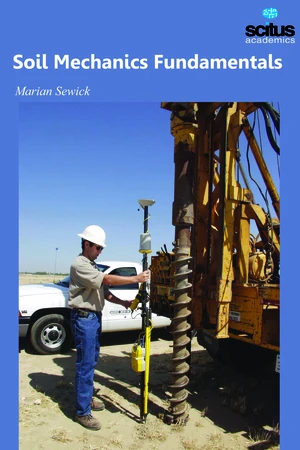Soil mechanics is the study of the physical properties of soil, especially those properties that affect its ability to bear weight, such as water content, density, strength, etc.Soil mechanics is a branch of engineering mechanics that describes the behavior of soils. It differs from fluid mechanics and solid mechanics in the sense that soils consist of a heterogeneous mixture of fluids and particles but soil may also contain organic solids, liquids, and gasses and other matter. Along with rock mechanics, soil mechanics provides the theoretical basis for analysis in geotechnical engineering. Soil mechanics is used to analyze the deformations of and flow of fluids within natural and man-made structures that are supported on or made of soil, or structures that are buried in soils. Applications are building and bridge foundations, retaining walls, dams, and buried pipeline systems. Principles of soil mechanics are also used in related disciplines such as engineering geology, geophysical engineering, coastal engineering, agricultural engineering, hydrology and soil physics.Soil Mechanics covers the genesis and composition of soil, the distinction between pore water pressure and inter-granular effective stress, capillary action of fluids in the pore spaces, soil classification, seepage and permeability, time dependent change of volume due to squeezing water out of tiny pore spaces, also known as consolidation, shear strength and stiffness of soils.
Price history
Oct 25, 2021
€143.59

